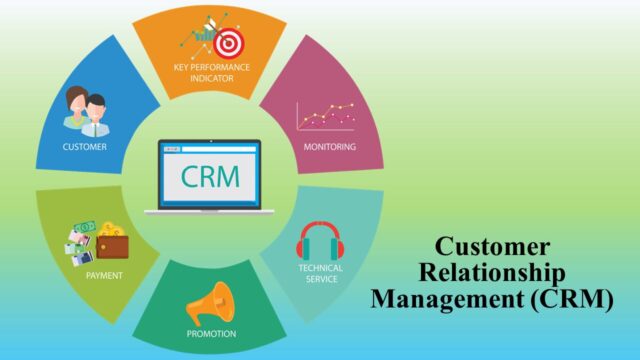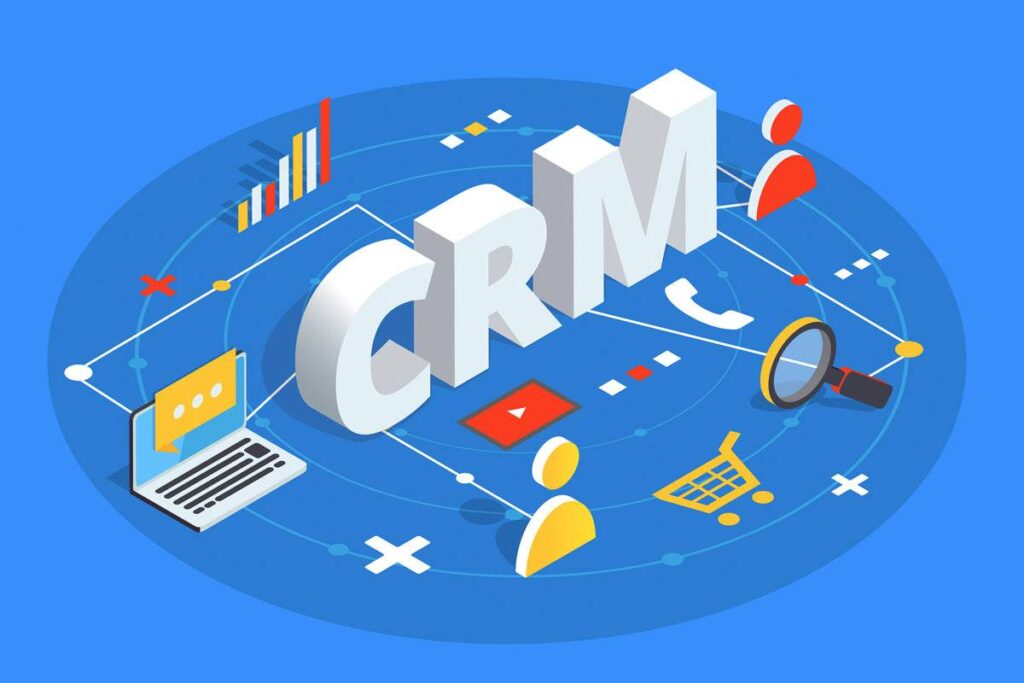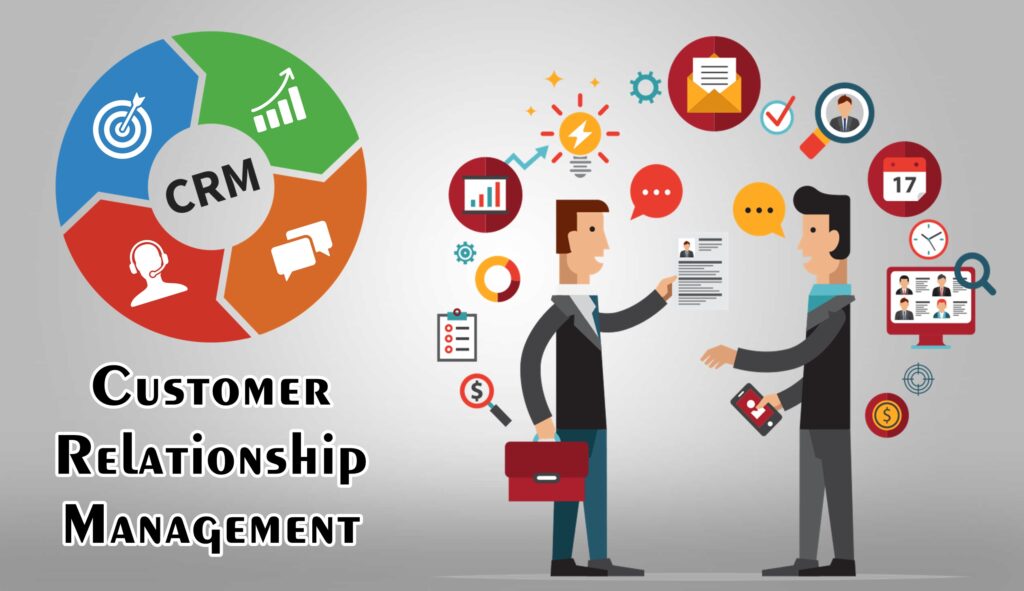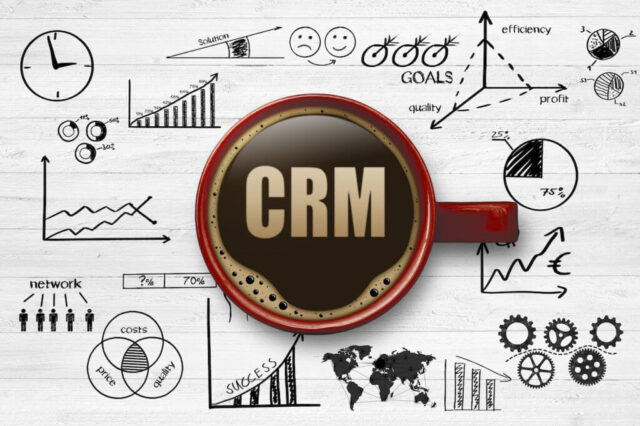
While sales were made exclusively in local stores, trust between seller and buyer was considered a matter of course. However, as the market developed, it became more and more widespread in online stores, so that the trust between the retailer and the customer itself became questionable.
Definition of CRM

Customer Relationship Management (CRM) can be defined as a strategy used by companies for the management and data analysis. In other words, this term is related to applications and software that represent a central customer base. In addition to having a clear insight into the client base in this way, it also allows interactions with it. This interaction includes correspondence with the client via e-mail and messages, as well as information on previous interactions and previously signed contracts and agreed on projects.
CRM is, first of all, a methodology and strategy of business–oriented to the customer, and only then software and Internet support to companies for efficient sales management. CRM covers interaction with potential and regular customers, suppliers and partners. It is a business strategy in which the customer – rather than the product – is at the heart of the business. CRM should therefore not only be viewed as a technology but as a customer-oriented way of doing business that provides a competitive advantage.
The need for CRM software is largely motivated by the fact that customer loyalty is crucial. Simply put, customers are becoming more demanding and carefully choose the company they will trust. What has once considered a great service is now the basis for the personalized service that customers expect. CRM software is designed precisely to help organizations compete to more effectively attract the attention of potential customers, guiding them through the process of closing sales and retaining them in the future (so–called after–sales).
Why do you need CRM software?

Whether you have only a couple of employees or dozens of them, interacting with consumers is vital, and that is exactly what EngageBay CRM provides because every data obtained from communication with the consumer is the key to successful cooperation.
1. Integration
Ease of data exchange and unified storage of chronological data on customers is extremely important in the sale of related products and services or in assessing the success of a marketing campaign.
Integration with other systems (ERP, finance, etc.) is very important. What is standard for an ERP system (financial management, debt, and receivables monitoring, cost planning, etc.) CRM software generally does not have. On the other hand, ERP systems lack advanced CRM software functions (marketing campaign management, etc.). Because they strive for a single offer, manufacturers solve this problem through partnerships, mergers, or the development of their system. Certain ERP vendors offer everything in one package, but such solutions are still not as advanced as dedicated CRM software. An independent CRM software manufacturer or a manufacturer of ERP solutions with a CRM module is a decision that is made per their own needs.
Email communication is as widespread today as the MS Outlook software package, which is why some CRM vendors integrate their software with Outlook for email and contact management. Data exchange with MS Office programs does not end in Outlook. Data can (or at least should be enabled) be shared with Word, Excel, and other MS Office programs. Since these applications have long been known to users, it shortens the time and reduces training and maintenance costs.
2. Reporting

Most CRM solutions have a reporting system. Some standard reports were originally embedded, but some software vendors have opted to develop very complex reporting tools, while others allow integration with existing business reporting tools. However, most support a combination of the previous two approaches, which allows for flexibility in operation. Importing and exporting data to applications such as Microsoft Access or Excel is also supported.
3. Modules and functionality

The functionality of CRM business software can be roughly divided into three basic groups: sales automation, marketing automation, and after-sales support management. This list is by no means a list of all the possibilities that CRM software offers, but it is the basis for understanding its functionality.
Sales automation involves supporting the sales process from the first contact with the customer to the conclusion of the sale. CRM software should facilitate the exchange of sales information between employees and provide full insight into potential customer data, from basic information, through tracking of all activities (meetings, promotional material, brochures, documentation, etc.), to the conclusion of the deal. It is a standard feature offered in even the most modest CRM solution. This module should keep track of names, addresses, contacts, interests, previous contact information, notes, and all other information in one place. When collecting this data, the software should allow potential customers to be redirected to other sellers (if the market is divided into sales regions, for example) and shared information to be redirected to partner sales channels, if sales are so organized. The possibility of forming special price lists and offers is necessary in the CRM software.
When a potential customer becomes an actual customer (upon completion of the sale), the CRM software must be able to keep a “history” of that customer. It should contain data on previous orders, sent documentation, catalogs, agreed prices, discounts, etc. More advanced CRM systems enable tracking of sales tasks, as well as tracking sales costs per customer, per employee, or by any arbitrary criterion.
The benefits of e-commerce are now more than obvious and CRM software should also support such business processes in the form of the ability to track B2B (Business to Business) or B2C (Business to Customer) transactions.
Competitor analysis is a desirable module because it allows you to track their prices and activities in a particular market area.
Marketing automation means the ability to define marketing campaigns and track results. It includes monitoring the life cycle of the campaign, from design and implementation to results and analysis. More advanced systems allow multiple campaigns to be tracked simultaneously. Campaigns can be targeted, choosing a group of customers with specific interests, or general when customers are informed about new products or services. Also, campaigns can be organized in cooperation with business partners (joint campaigns). CRM software simply has to support all of this.
4. After-sales support

After-sales support is perceived by most customers as servicing a defective product. However, customer support after the sale is much more than that, although resolving the problem that has arisen is one of the default activities in that process.
CRM software must provide enough information in all previous modules to finally get a satisfied and loyal customer.
The future of CRM software
As the CRM software market grows, so will custom software packages. Increasing functionality directed towards certain branches of industry (verticalization), as well as international support (support for multiple languages and currencies) is noticeable directions of development today. Increasing competition in the domestic market will make the customer a truly central figure of every company. How much the local software producers will hear about this tendency remains to be seen.













